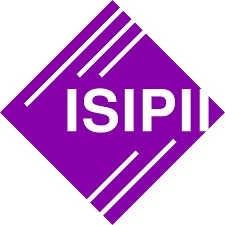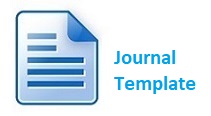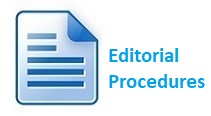Literasi kesehatan ibu dan anak kalangan ibu PKK masyarakat Kecamatan Payakumbuh Timur
Abstract
Maternal and child health is a crucial aspect of public health development, considering the vital role of mothers as primary caregivers and the foundation of the family. The rapid advancement of science and technology (IPTEK) today is unavoidable, and the need for information has become a primary necessity for humans. To live in an information society, knowledge and information management techniques are required. An individual's ability to access, understand, and use information and health services to make informed decisions is known as health information literacy. Health information literacy is crucial in building a quality society, particularly concerning maternal and child health. This study aims to assess the ability of the community to access and understand information regarding maternal and child health in Payakumbuh Timur District, specifically among the mothers of the Family Welfare Empowerment (PKK) group. This research employs a quantitative method with a descriptive survey approach utilizing questionnaires, observations, and interviews for data collection. The study results show that the community's ability in maternal and child health information literacy is categorized as high. Seven information literacy skills were measured, all of which were rated high: 1. The ability to recognize community information (83.8%), 2. The ability to identify information gaps (82.4%), 3. The ability to develop information search strategies (69.1%), 4. The ability to access information (86.8%), 5. The ability to evaluate information (70.6%), 6. The ability to manage information (89.7%), and 7. The ability to present information (69.1%). In conclusion, maternal and child health information literacy among PKK mothers in Payakumbuh Timur District is very good, enabling them to effectively access, understand, and use health information to improve family health and well-being.
Keywords
Full Text:
PDFReferences
Aji, B., Anandari, D., Soetikno, H., & Sumawan, H. (2022). Sustaining maternal and child health programs when donor funding ends: A case study of stakeholder involvement in Indonesia. The International Journal of Health Planning and Management, 37(4), 2049–2062. https://doi.org/10.1002/hpm.3448
Bungin, B. (2011). Metode penelitian kuantitatif. Jakarta: Kencana.
Dalton, M. (2013). Developing an evidence-based practice healthcare lens for the sconul seven pillars of information literacy model. Journal of Information Literacy, 7(1). https://doi.org/10.11645/7.1.1813
Deckert, J., & Wilson, M. (2023). Descriptive research methods. In Research Methods in the Dance Sciences (pp. 153–165). University Press of Florida. https://doi.org/10.5744/florida/9780813069548.003.0011
Fistianti, I., Pudjowati, J., Masadah, M., & Retnowati, N. (2022). Upaya peningkatan kemampuan literasi informasi model seven pillars sconul terhadap pemustaka melalui pelayanan bimbingan literasi informasi pemustaka. Indonesian Journal of Management Science, 1(1), 23–28. https://doi.org/10.46821/ijms.v1i1.310
Grøn, R. R., Christiansen, C. E., Strøm, J., & Høybye, M. T. (2023). The practice of information appraisal: An ethnographic study of a health information intervention. Health: An Interdisciplinary Journal for the Social Study of Health, Illness and Medicine. https://doi.org/10.1177/13634593231204173
Kanj Wayne, M. M. (2009). Health literacy-world health organization.
Komariah, N., Prijana, P., & Winoto, Y. (2018). Upaya pemberdayaan perempuan melalui pelatihan literasi informasi kesehatan pada ibu-ibu kader pkk di Kecamatan Jatinangor Kabupaten Sumedang. Dharmakarya, 7(1). https://doi.org/10.24198/dharmakarya.v7i1.10319
Li, J., & Chen, J. (2023). Media exposure, trustworthiness of sources and the health information literacy knowledge gap: a study in China. Health Promotion International, 38(5). https://doi.org/10.1093/heapro/daad129
Lukman, L., Hamna, D. M., & Azzahra, A. N. F. (2024). Implementasi teori the seven pillars of information literacy sconul dalam menganalisis kemampuan literasi informasi masyarakat Kelurahan Pattallassang. Berkala Ilmu Perpustakaan Dan Informasi, 20(1), 133–146. https://doi.org/10.22146/bip.v20i1.10424
Makinde, O. B., Hamzat, S. A., & Onuoha, U. D. (2024). Information access. In Reference Module in Social Sciences. Elsevier. https://doi.org/10.1016/B978-0-323-95689-5.00083-3
Mubasiroh, S. L. (2023). Analisis kemampuan literasi informasi mahasiswa dengan model the seven pillars of information literacy dalam pembelajaran daring. LITERASI (Jurnal Ilmu Pendidikan), 14(1), 24. https://doi.org/10.21927/literasi.2023.14(1).24-32
Polcrova, A., Lustigova, M., Pavlovska, I., Maranhao Neto, G., Pikhart, H., Kucera, Z., & Gonzalez-Rivas, J. (2021). Health literacy in phases of health information processing in the Czech population. European Journal of Public Health, 31(Supplement_3). https://doi.org/10.1093/eurpub/ckab165.636
Prasanti, D. (2018). Health information of literation as prevention processes of hoax information in the use of traditional medicine in digital era. Journal Pekommas, 3(1), 45. https://doi.org/10.30818/jpkm.2018.2030105
Saepudin, E. (2013). Literasi informasi kesehatan lingkungan pada masyarakat pedesaan: Studi deskriptif di Desa Nagrog Kecamatan Cicalengka. Kajian Informasi & Perpustakaan, 1(1), 81–89. https://doi.org/https://doi.org/10.24198/jkip.v1i1.9614.g4324
Sugiyono. (2009). Metode penelitian kuantitatif, kualitatif dan r&d. Bandung: Alfabeta.
DOI: https://doi.org/10.24198/inf.v4i2.50765
Refbacks
- There are currently no refbacks.
Copyright (c) 2024 Author

This work is licensed under a Creative Commons Attribution-ShareAlike 4.0 International License.
Informatio Indexed by:
Editorial Office :
Library and Information Science Study Program, Building 3 Floor 2, Faculty of Communication Science, Universitas Padjadjaran
Jl. Raya Bandung Sumedang Km. 21 Jatinangor, Sumedang 45363
Principal Contact :
Phone : 08122184219
Email : rully.khairul@unpad.ac.id

 ,
,




2.png)


